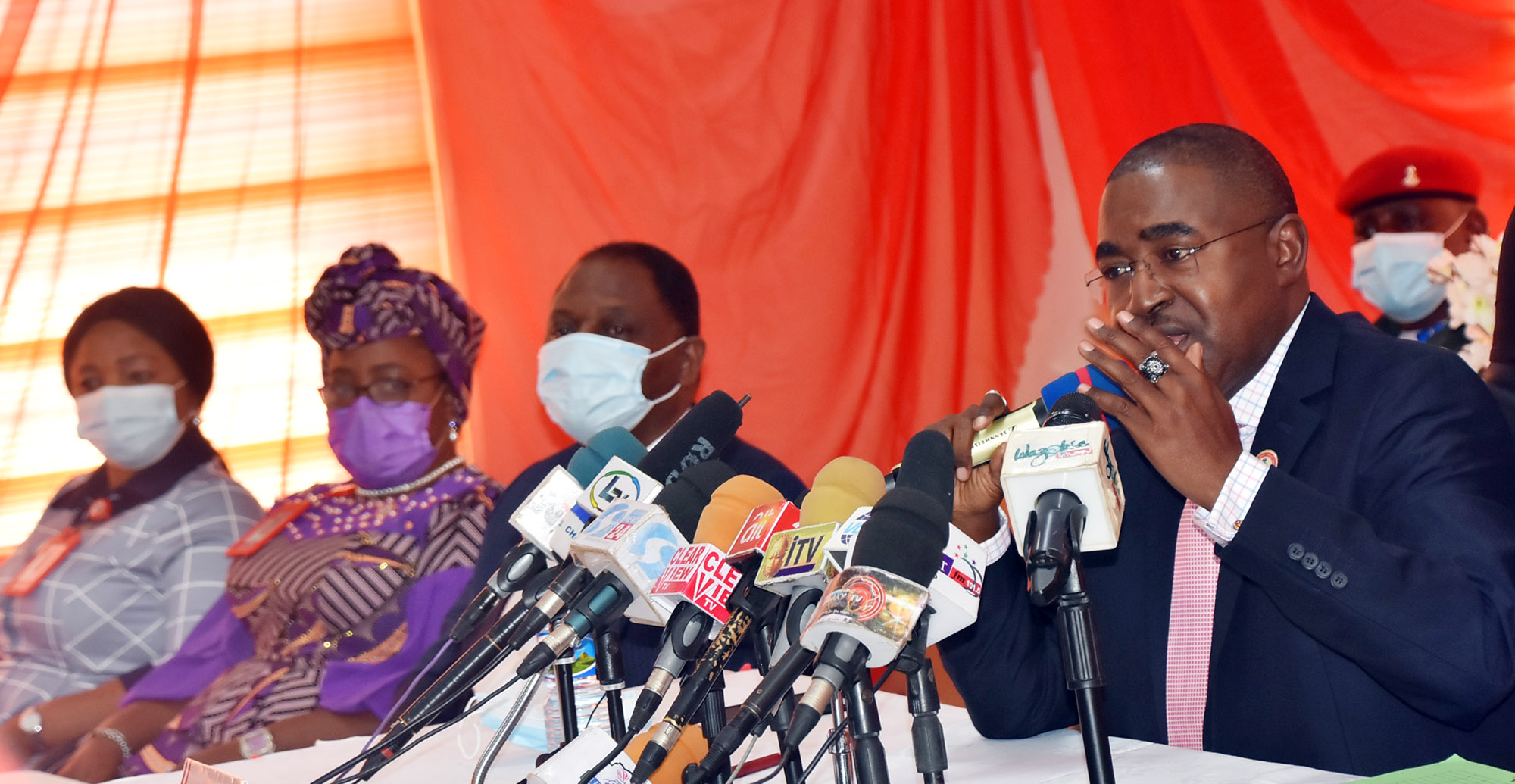Business
SON Pledges Support For Made In Nigeria Goods

Standard Organisation of Nigeria (SON) has restated its commitment to support locally made goods, and enhance safety of lives, consumer growth and expansion of the manufacturing industry towards attaining economic growth of the country.
Director-General of SON, Mallam Farouk Salim, stated this during an oversight inspection of substandard goods seized across the country by SON’s Surveillance, Intelligence and Monitoring Unit (SIM) and the Inspectorate and Compliance Division (ICD), at the agency’s warehouse in Amuwo-Odofin area of Lagos.
Salim stated that the organisation is willing to collaborate with any company serious about building a tyre manufacturing factory in the country
“We will gladly give them all the cooperation they need, and also lobby the legislature and other agencies in the country to give them the same backing”, he said.
The SON boss during the tour of the warehouse facility to ascertain the items recovered from importers, said it was alarming to note the large number of substandard goods ranging from tyres, electrical cables roofing sheets, lubricants, etc.
According to an inventory presented to him, a total of 2,717 bundles of substandard roofing sheets, 6,100 rolls of substandard cables, 200 pieces of stuffed tyres and 634 cartons of substandard expired cigarettes were seized, awaiting court order and destruction.
“As a law-abiding agency, such action requires a court order before destruction can be fully implemented so that everything is done according to due process as stipulated in the SON Act 52 of 2015”, he said.
While expressing concern over the influx of substandard goods into the country, Salim urged consumers to be vigilant when buying items from the market and to report any suspicious product to SON for immediate action to ensure the safety of future consumers.
“We are not excited wasting peoples’ money, but we do relish the idea of making sure that substandard goods are out of the market”, Salim concluded.
By: Nkpemenyie Mcdominic, Lagos
Business
Two Federal Agencies Enter Pack On Expansion, Sustainable Electricity In Niger Delta

Business
Why The AI Boom May Extend The Reign Of Natural Gas

Business
Ogun To Join Oil-Producing States ……..As NNPCL Kicks Off Commercial Oil Production At Eba

-

 Politics4 days ago
Politics4 days agoAPC Releases Adjusted Timetable For Nationwide Congresses, Convention
-

 Sports1 day ago
Sports1 day ago2026 WC: Nigeria, DR Congo Awaits FIFA Verdict Today
-
Sports4 days ago
DG NIS Wants NSC Board Constituted, Seeks Increased In Funding
-

 Business4 days ago
Business4 days agoCustoms Seek Support To Curb Smuggling In Ogun
-

 Featured4 days ago
Featured4 days agoINEC Proposes N873.78bn For 2027 Elections, N171bn For 2026 Operations
-

 Sports4 days ago
Sports4 days agoSWAN Rivers Set-up Five Functional Committees
-
Sports4 days ago
NSC Disburses N200m Training Grants To 26 Athletes
-
News4 days ago
Police Bust Kidnapping Syndicate In PH

